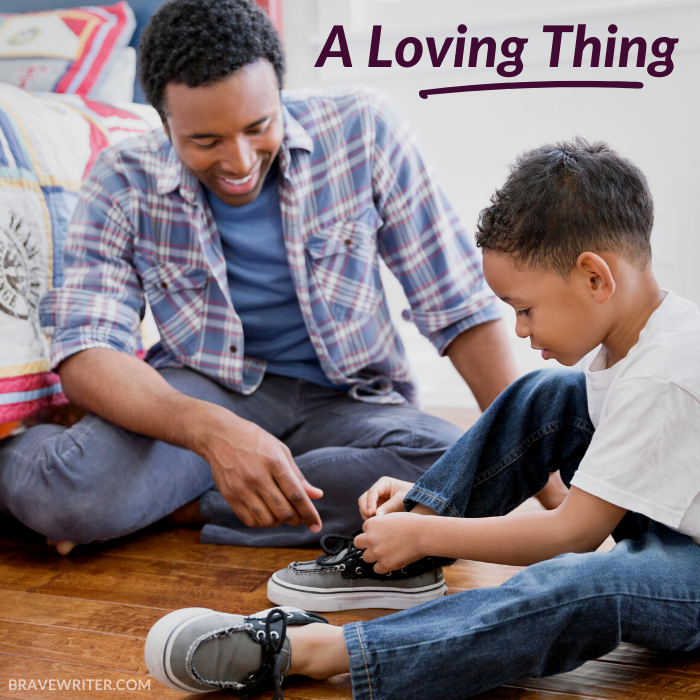A Loving Thing

Imagine what it might be like to trust a child to grow and develop and learn. Start there. Then, if you have anything to offer, come from spaciousness, kindness, patience, and self-control.
Here’s what happens with me. My kid is not successful yet at something—any old thing from tying shoes to mastering math facts to peeing straight, aimed at the toilet and not the wall!
I come along and suddenly my adrenaline shoots, my mind is awash with urgency, and words start forming in my mouth that are CERTAIN to save my child from the hard reality of being who they are at this moment in time with this particular skill set.
I have the ego and audacity to believe that this one conversation, one idea, one method, one practice will SOLVE it: no more confusion, no more misfirings, no more failed attempts.
So I launch my urgent words at this child and… Oh my gosh, unforeseen BLOWBACK! Won’t listen, gets sassy, goes quiet, tears up… It’s as if this human being is not utterly grateful and impressed with my carefully constructed solution to what I see as a problem! In fact, this little person is not! They are not yet ready to apply my perfect solution. In fact, they resent it!
What I think is a problem may not even have been experienced as problematic by my child or teen! Here I am making them feel deficient somehow.
But what’s a loving thing?
- Maybe it’s silence.
- Maybe it’s sidling up and watching.
- Maybe it’s sending a text message with a link.
- Maybe it’s checking in to see how this little person is doing (if they are happily failing at tying shoes, who am I to swoop in and fix it yet?).
- Maybe it’s leaving a bottle of Windex and a rag next to the toilet with a note.
- Maybe it’s asking if the child wants your input before delivering it.
Bottom Line: Adults aren’t always right. Kids know this. Adults forget this.
You can do this.


















